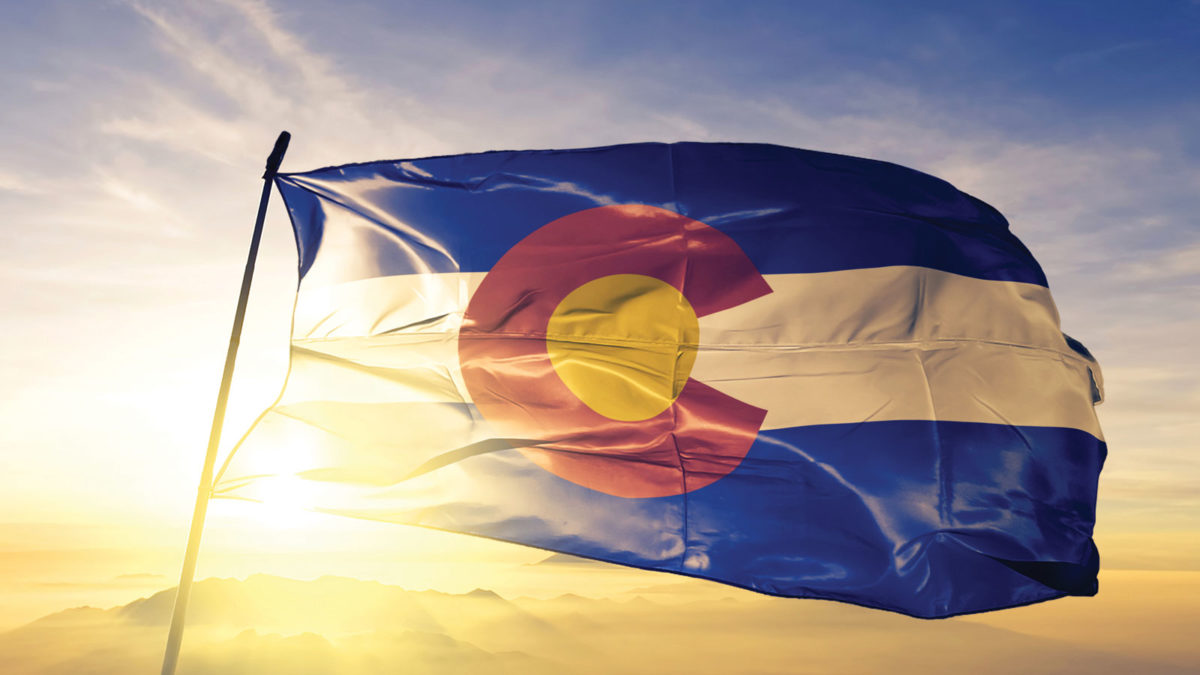
Federal Pro Bono Programs in Colorado
June 2022
Download This Article (.pdf)
Over the past 15 years, pro se filings in the federal US District Court for the District of Colorado have averaged around 30% of the total number of civil cases filed per year in that court. In 2020, there were 1,247 pro se case filings, which represented 32.3% of the total number of federal civil cases filed in Colorado. While unrepresented plaintiffs account for the bulk of those needing pro bono assistance, defendants such as small business owners, homeowners, and law enforcement/prison officials historically account for approximately 12% of the need for pro bono counsel.1
For such unrepresented litigants, the District of Colorado has established programs such as the Civil Pro Bono Program, the Federal Pro Se Clinic, and the Federal Limited Appearance Program (FLAP).
In general, the Civil Pro Bono Program finds long-term pro bono representation for pro se litigants of limited means, the Federal Pro Se Clinic provides pro se litigants with short-term legal advice about federal litigation, and FLAP provides pro se litigants with limited pro bono representation in connection with a specific court appearance.
Civil Pro Bono Program
The Civil Pro Bono Program was formed under the leadership of Chief Judge Wiley Y. Daniel in 2013 as a pilot program to match volunteer attorneys and law firms with pro se litigants of limited means in civil cases.2 The court’s Standing Committee on Pro Se Litigation then developed a permanent program in partnership with the Faculty of Federal Advocates (FFA), which previously had worked closely with court staff to align interested attorneys with pro se parties needing pro bono assistance. Local Attorney Rule 15, Civil Pro Bono Representation, formalized the program in 2014 as a permanent local rule in the District of Colorado. From July 2019 through the end of 2020, the program helped 67 parties obtain pro bono legal representation in the District of Colorado.3
The program establishes a Civil Pro Bono Panel (Panel) of eligible attorneys who are willing to represent, without compensation, eligible unrepresented parties in civil actions to provide general or limited representation when requested by the court. The court initiates the process by granting a pro se litigant’s motion for appointment of counsel. The case is then assigned to an appropriate Panel member, who may accept or decline the case.4 A list of pro bono cases (prisoner and non-prisoner) that were declined upon initial assignment (and thus available and in need of pro bono assistance) is circulated among all Panel members on a monthly basis. Another list of available pro bono cases that still remain unassigned is posted on the court’s website.5 Listed pro bono cases may involve civil rights, consumer rights, employment discrimination, and prisoners’ civil rights matters.
The Panel is open to individual lawyers, law firms, and law school clinical programs. In 2021, it comprised 131 individual lawyers and 41 law firms/organizations. Many law firm members join the Panel as a federal practice training tool in conjunction with their own in-house training. The program also promotes mentoring by matching experienced counsel with less experienced lawyers or by identifying more experienced counsel to serve in an advisory role. In addition, the program maintains a volunteer roster of distinguished mediators who are willing to conduct pro bono mediations.
Attorneys who are not members of the Panel may also volunteer for pro bono cases through this program. For example, Roderick O’Dorisio, a member of the Colorado IP American Inn of Court, volunteered to appear pro bono in a breach of contract case in January 2021 after the Colorado IP Inn’s Community Outreach Committee circulated a list of available pro bono cases to the Inn’s members. Roderick said that he “gained invaluable experience” from his pro bono work representing “a small business entrepreneur in a very interesting and challenging case.” Roderick’s pro bono undertaking was publicly recognized by the Civil Pro Bono Program in its annual recognition of volunteer attorneys.
Federal Pro Se Clinic
The Federal Pro Se Clinic has a different mandate—namely, to provide limited scope legal information and advice about navigating the federal court system to assist individuals who wish to file a civil case or have filed a civil case without a lawyer, or who have been named as a defendant in a civil case filed in federal court and intend to proceed without paid counsel. The Colorado Bar Association has operated the clinic pursuant to an agreement with the District of Colorado since 2018.
The clinic strives to address the immediate questions an unrepresented litigant may have regarding federal litigation. Clinic volunteers assist pro se litigants by explaining court rules, procedures, and orders; reviewing (but not drafting) pleadings, motions, responses, and other court filings; and addressing forum and jurisdiction questions. The goal is to help pro se litigants avoid procedural shortcomings so that their cases may be properly presented to the court and evaluated on the merits. “Clinic staff and volunteers truly empower pro se litigants and aid them in having a fair opportunity to present their case,” according to US Magistrate Judge S. Kato Crews.6
The Federal Pro Se Clinic works closely with the Civil Pro Bono Program, often matching clinic clients with Panel members after the clinic has provided short-term legal advice. This can provide an unrepresented litigant with continuous legal assistance throughout the case.
The clinic is currently dedicated to non-prisoner litigation and most often assists litigants with civil rights, employment, and personal injury matters, but occasionally assists in intellectual property cases as well. Recently, in response to a request from the clinic, Colorado IP American Inn of Court member Kammie Cuneo volunteered to represent an elderly defendant in a copyright infringement lawsuit, which she helped settle amicably in 2021. “It is incumbent on those who can to aid those who need,” she noted.
Federal Limited Appearance Program
FLAP was launched in November 2020 to further promote the District of Colorado’s access to justice goals. FLAP is a volunteer-driven program that was developed by the court in collaboration with the CBA Young Lawyers Division (YLD).
As described on the CBA YLD website, FLAP helps “bridge the gap between the limited scope, out-of-court services provided by the Federal Pro Se Clinic and the full-scope pro bono representation facilitated by the Civil Pro Bono Panel.”7 Specifically, the program’s volunteer attorneys help pro se parties involved in civil litigation with procedural and other non-dispositive issues by providing limited representation before, during, and/or immediately after scheduled appearances in the US District Court for the District of Colorado, such as scheduling and status conferences, discovery conferences, and other non-dispositive hearings. Appropriate cases with a scheduled appearance are often flagged by judicial officers and routed through the Civil Pro Bono Program to a FLAP volunteer attorney who can undertake a limited representation for that appearance.
Having an attorney explain a court proceeding in the context of the litigation process can be immensely beneficial to both the pro se litigant and the court. FLAP also gives young attorneys the opportunity for “stand up” time in court—including exposure to federal court decorum, procedures, and judges—as well as additional avenues for client contact and interaction.
While the District of Colorado generally does not permit the Colorado state court practice of allowing attorneys to provide limited representation to clients, the court began permitting limited representation of incarcerated litigants in civil actions in December 2014. After a two-year trial period, the court found that attorneys successfully provided limited scope representation of prisoners in civil actions, to the benefit of the client, counsel, and the court. The scope of limited representation was then expanded to include all unrepresented parties. Limited representation appearances are expected to rise with the FLAP program.
Conclusion
Pro bono assistance for pro se litigants is an important part of the access to justice solution. It enhances the court’s ability to help all litigants by addressing the significant part of the court’s docket spent assisting pro se litigants who are unfamiliar with court procedures. As Magistrate Judge Kristen Mix, the founder of the Federal Pro Se Clinic in the District of Colorado, explains: “Helping to ensure that everyone is heard in the most effective manner increases our ability to manage the entirety of the docket, from the most complex cases to those requiring fewer resources.” Fortunately, Colorado lawyers who want to serve pro se litigants have a choice of pro bono avenues in the District of Colorado. 
Related Topics
Notes
1. 2019–20 Annual Report, US District Court, District of Colorado, Civil Pro Bono Panel, http://www.cod.uscourts.gov/Portals/0/Documents/AttInfo/2019_2020_Pro_Bono_Panel_Annual_Report.pdf.
2. The program is intended to aid litigants of limited financial means, not just the “indigent.”
3. Karlik, “Colorado Program Gives Federal Litigants Representation, Hope,” Colo. Politics (Mar. 31, 2021).
4. The program is premised on the voluntariness of case assignments. Attorneys who are asked to review a case are not obliged to accept it, and no penalty ensues for declining a case. Attorneys may “opt out” from case types that do not match their preferences.
5. http://www.cod.uscourts.gov/AttorneyInformation/CivilProBonoPanel-Details,andAvailableCases.aspx.
6. “Federal Pro Se Clinic in Colorado Helps the Public Navigate Our Federal Courts,” IAALS blog (Mar. 30, 2021), https://iaals.du.edu/blog/federal-pro-se-clinic-colorado-helps-public-navigate-our-federal-courts.
7. https://www.cobar.org/For-Members/Young-Lawyers-Division/Federal-Limited-Scope-Appearance-Program.


